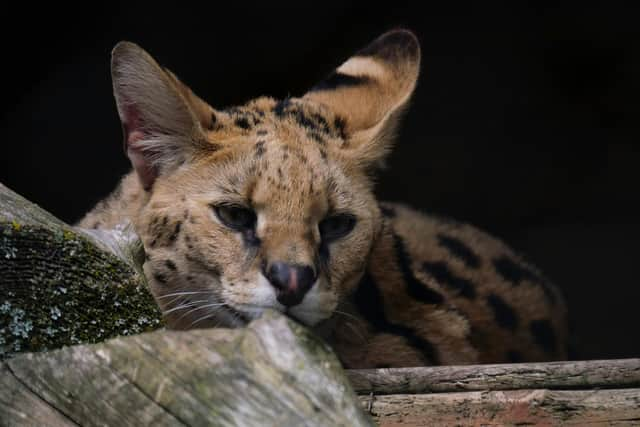Over a dozen dangerous wild animals legally owned by people in Central Bedfordshire
and live on Freeview channel 276
More than a dozen dangerous wild animals are privately kept by people in Central Bedfordshire, new figures show.
Wildlife charity the Born Free Foundation said improved regulation is needed, after its research found thousands of wild animals are owned privately across Great Britain.
Advertisement
Hide AdAdvertisement
Hide AdFigures obtained by the charity from freedom of information requests sent to councils reveal there are 17 animals covered by dangerous wild animal licences in Central Bedfordshire.


There are two serval cats kept in the area. And the reptiles kept in the area include: Four Sri-lankan green pit vipers, an eyelash viper, two green bush vipers, three Western pygmy rattlesnakes and four banded rock rattlesnakes.
Chris Lewis, Born Free's captivity research officer said: "The Dangerous Wild Animals Act was intended to make the keeping of such animals categorised as 'dangerous' a wholly exceptional circumstance.
"However, Born Free’s ongoing research paints a very different picture."
Advertisement
Hide AdAdvertisement
Hide AdHe added regulations on the keeping and trading of wild animals kept as pets are "in urgent need of review".
Across Great Britain, the charity found over 2,700 dangerous wild animals were licenced to be owned privately. They include more than 200 wild cats and 250 primates. It estimates there are also 400 venomous snakes "kept in British homes", more than 10 times the number in zoos.
Mr Lewis added regulations on the keeping and trading of wild animals kept as pets are "in urgent need of review".
Dr Mark Jones, the charity’s head of policy said: "It is unbelievable that, in this day and age, so many dangerous animals, including big cats, large primates, crocodiles and venomous snakes, continue to be legally kept in people’s homes in the UK.
Advertisement
Hide AdAdvertisement
Hide AdA Department for Environment, Food and Rural Affairs spokesperson said anyone wishing to keep an animal under the Dangerous Wild Animals Act must be vetted and apply for a licence which sets out conditions on caring for the animal.
They added: "We keep this legislation under regular review to ensure it remains effective in keeping the public safe."
They said the Government increased the maximum prison sentence for animal cruelty to five years in 2021, and added it is currently bringing forward legislation to prohibit primates being kept as domestic pets.